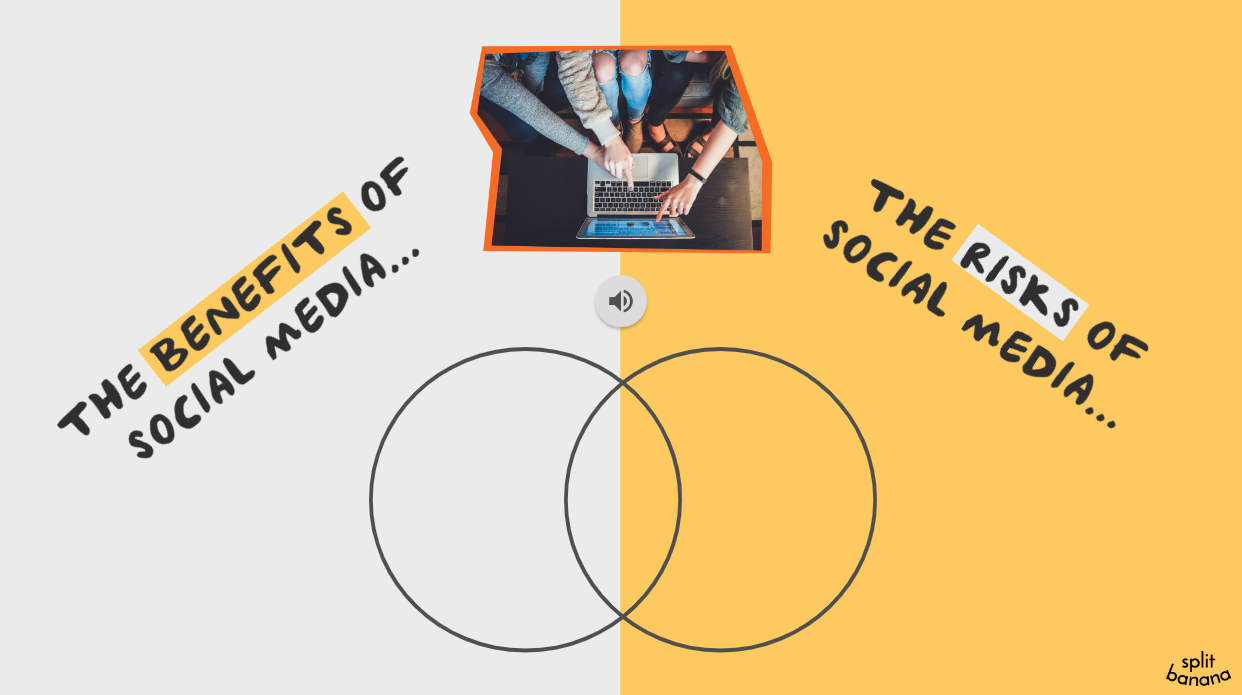The online world in 2024: how to navigate the unknown
Ideas + tips for educators
It can feel difficult knowing how to educate young people about the online world when their experiences of it are so drastically different from those most educators had when growing up. Some of us were lucky to have MSN on a family desktop, whereas now 93% of teens are on social media, 76% are gaming, and 77% of children go online to do their homework. Trends and risks are constantly changing, and lesson plans become quickly outdated. This is why a focus on skills-based education is key.
Recognise the complexity
We've seen time and again that it isn't helpful when adults frame something as "all bad". It shuts down conversation and doesn't teach young people how to navigate risk. Ofcom found that 69% of young adults agreed that the benefits of being online outweigh the risks, and 75% of girls aged 12-17 used social media to send supportive messages to friends. Instead of just looking at the negatives, show curiosity in the nuance of young people's perspectives:
You might ask, 'what do they like and not like about the online world?' 'Which parts add benefit to their lives and what would they like to see change?'
Consider encouraging creative reflection of the impact of different online interactions on their mood, for example, asking them to find or draw an image that reflects how they feel after spending time on TikTok vs a video game and talk about why.
It might also be powerful to ask them to bring in and share positive examples, e.g. an influencer that inspires them and why, an account that inclusively represents different bodies and sexualities, an example of a game that they have learnt something from about healthy relationships.
Develop media literacy
One of the most sustainable pedagogical approaches to RSE is developing young people’s critical thinking skills. This can be applied across different mediums.
For example, rather than focusing only on the narratives about sex portrayed in mainstream pornography, we might begin by asking a more open question about ‘Where do we get our ideas about sex from?’.
Asking questions makes the discussion relevant to everyone in the room and allows us to make connections across cultural scripts.
For example, students might identify the way that male possessiveness is framed as romantic in certain movies or identify the normalisation of misogynistic language in specific song lyrics.
Asking students to reflect on the purpose of these different sources of ideas can also be a good discussion:
For example, how sexual health services are motivated to provide more clinical, informative content that keeps people safe and perhaps focus less on emotions or pleasure, whereas a porn site has a financial investment in people staying on their page, which might lead to increasingly graphic content to get more clicks.
These conversations, unpacking both messaging and motivations, can help foster a more critical engagement with different media that young people might consume.
Provide reliable, positive alternative sources of information about healthy relationships, sexuality and wellbeing
The online world is not a magical separate sphere, and many of the ‘issues’ attributed to online spaces, are extensions of existing problems, that are either exacerbated by or displaced to different mediums. We should look at the root cause, rather than seeing them in isolation, and provide skills based education, for example:
If there are instances of ‘online bullying’, explore what healthy and supportive friendships look like (on and offline) (see our Staying Safe Online Workshop)
If screen time is an issue, work together to create personalised self care plans that involve non-screen activities (see our Mental Health Workshop)
If you perceive social media to be negatively impacting students self esteem - teach about the body positive movement and build their self care toolkit (see our Body Image Workshop)
In response to reports about ‘revenge porn’ - teach from an early age about consent and respecting people’s boundaries. (see our Consent Workshop)
In response to reports about young people replicating violent pornography - teach about different types of sex and navigating sexual pressure (see our Sex + Intimacy Workshop)
In this way, we encourage you to avoid responding to fears with a “don’t do X” approach and instead build young people’s knowledge and skills so that they can make informed and empowered choices.
Reading and resources for educators:
Ofcom’s ‘Children and parents: media use and attitudes’ Report (2022): https://www.ofcom.org.uk/__data/assets/pdf_file/0024/234609/childrens-media-use-and-attitudes-report-2022.pdf
Report from the Children’s Commissioner around Young People + Pornography (2023)https://www.childrenscommissioner.gov.uk/resource/a-lot-of-it-is-actually-just-abuse-young-people-and-pornography/
Research project about the impact of influencer culture (Ongoing): https://influencercultures.wixsite.com/influencerculture?_x_zm_rtaid=ZowFpO7eRUGzJk5PdbB1ZA.1708447461873.9c432ca58452d1eb198ed65db5a79a6f&_x_zm_rhtaid=391
Our hub for more RSE-related resources: https://splitbanana.co.uk/resources-for-educators
Resources to signpost young people to:
Pornography - https://www.bishuk.com/porn/ - BISH has a range of accessible articles for young people age 14+ about masturbation and pornography, including answering questions about addiction, the law, and how realistic (or not) most porn actually is.
Gaming - https://www.thinkuknow.co.uk/11_18/lets-talk-about/socialising-online/gaming/ - some top tips from CEOP about how to keep gaming fun and safe, and how to report behaviour if needed.
Social Media - https://www.youngminds.org.uk/young-person/coping-with-life/social-media-and-mental-health/ - this helpful page by Young Minds understanding your social media feed, how to block, mute or report other accounts and look after your privacy.
Sexting - https://www.childline.org.uk/info-advice/bullying-abuse-safety/online-mobile-safety/sexting/ Childline’s page about sexting, including information about the ‘report and remove’ tool that young people can use to confidentially report sexual images and videos of themselves and remove them from the internet.



